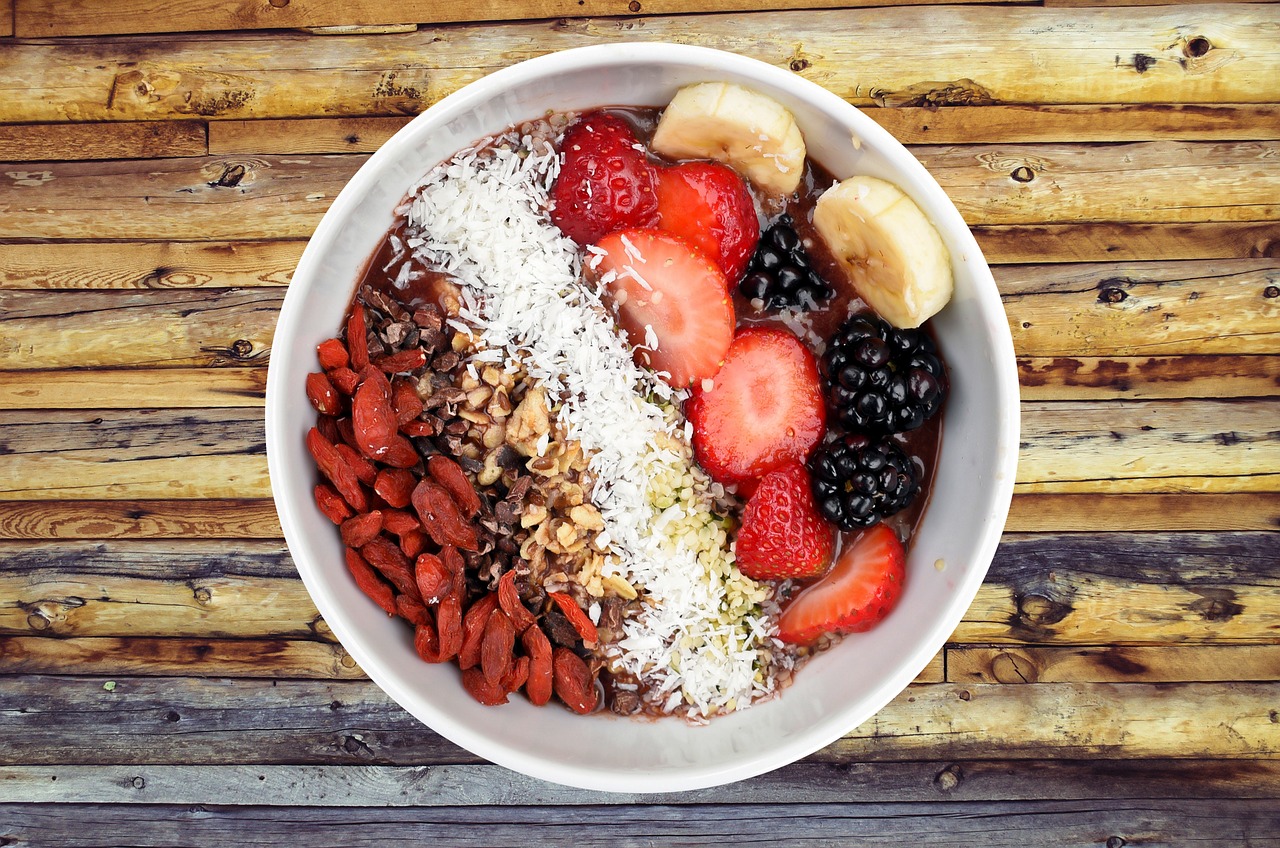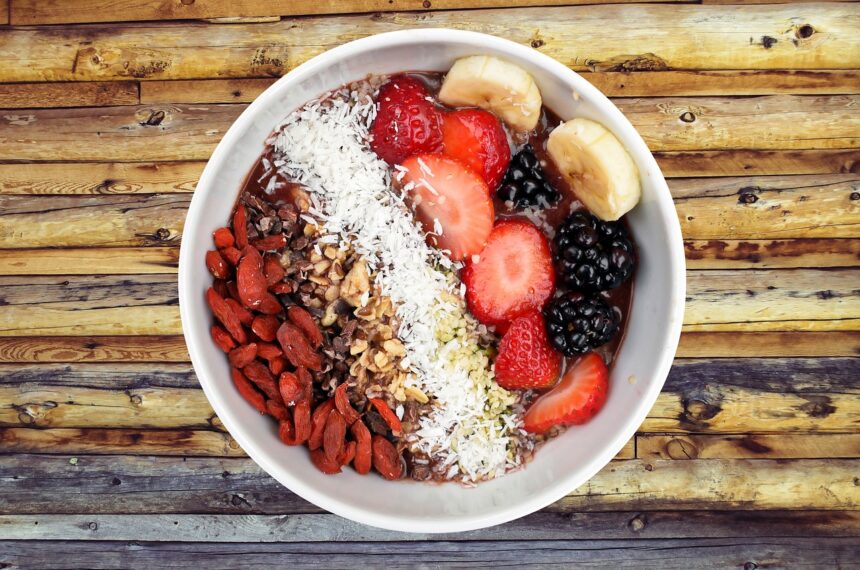The human digestive system is home to trillions of microbial cells that affect human physiology. Microorganisms in your gut play an important role in maintaining your body’s health.
They digest your food, produce vitamins, regulate your immune system, and protect you from harmful pathogens. Scientists have even suggested that gut health may be directly related to mental health.
Floral imbalances can lead to problems like bloating, gas, constipation, diarrhea, inflammation, and even mood disorders.
Maintaining excellent gut health is the easiest way to maintain overall health. For a healthier and happier intestine, you can follow 13 simple tips.
13 helpful tips for healthier intestines
Some of the most useful tips for a healthier intestine are:
1. Eat more fiber
It is important to eat more fiber to keep your gut healthy. Fiber is like the food for the good bacteria in your gut. Foods such as fruits, vegetables, whole grains, nuts, seeds, and beans are rich in fiber.
Eating fiber helps intestinal bacteria to reduce inflammation and create useful substances that improve metabolism. The fiber adds bulk to the poop and helps prevent constipation. Doctors suggest aiming for at least 25 grams of fiber every day.
2. Avoid antibiotics
Antibiotics are life-saving drugs that kill harmful bacteria. However, sometimes antibiotics kill good bacteria in the intestines, making them more susceptible to infections, allergies and stomach pain.
Take antibiotics only when your doctor is prescribed and always complete the course as directed. Improper use of antibiotics can also lead to increased antibiotic resistance.
3. Take Prebiotics
Prebiotics can be thought of as food for the healthy gut microbiota. They are probably the easiest way to have a healthy gut.
Most prebiotics are easily tolerated and have no harmful side effects. Prebiotic supplements like FiberMend It is easily available online, and is a healthy, nutritious drink that can be enjoyed at any time during the day, including juices, smoothies, or even water.
Prebiotics can help with digestive problems such as irritable bowel syndrome, diarrhea, and ulcerative colitis. They can also boost your immunity and mood.
4. Take probiotics
Don’t confuse it with prebiotics. Probiotics are real living bacteria that can replenish the gut flora and restore its diversity and function.
Find probiotics in foods like yogurt, kefir, sauerkraut, kimchi, kombucha, tempe, or take them as supplements.
Probiotics are especially useful after a course of antibiotics that kill good and bad gut bacteria.
5. Eat fermented foods
These are foods that have been converted by beneficial bacteria through a process called fermentation.
Fermented foods contain probiotics and prebiotics with healthy administration of enzymes, vitamins, minerals and antioxidants.
Some examples of fermented foods include yogurt, kefir, sauerkraut, kimchi, kombucha, tempeh, flavour o, nuts and sourdough bread.
6. Limit sugar and processed foods
These are the perfect comfort foods for everyone, including unfortunately the bad gut bacteria themselves.
Processed foods like sugar usually do not have enough fiber and nutrients suitable for your gut.
The harm begins in the mouth, and sugar causes plaque and cavities. Eating too much sugar or processed foods can lead to weight gain, diabetes, and heart problems.
7. I drink lots of water
Water is essential for intestinal health. Because it helps to wash away toxins and waste from your body.
It also hydrates the mucous membranes that protect the digestive tract from infections.
Water also softens and passes through your stool, preventing constipation and hemo.
If you exercise or live in a hot climate, aim for at least 8 glasses of water each day.
8. Get plenty of sleep
Get plenty of sleep It can help not only your intestines, but also your whole body. Deprived sleep is associated with intestinal problems.
One reason is that it takes your body 12 hours to digest a healthy diet. If you are always awake and working, your body may not be able to get the time to properly digest food.
9. Manage stress
Stress can damage gut health by altering the composition and function of intestinal bacteria. It can also affect digestion by causing convulsions, convulsions, nausea, diarrhea, or constipation.
Stress can also weaken the immune system, making it more susceptible to infections and inflammation.
Try practicing relaxation techniques such as meditation, yoga, and breathing exercises to manage your stress.
10. exercise
Even moderate amounts of exercise are associated with gut health. You don’t need to go to the gym. Even a 30 minute walk outside in the lovely sun can boost your intestines and give it that extra vitamin D.
If you have a busy schedule and can’t make time, small habits can help you make positive changes.
Instead of climbing the stairs instead of an elevator, or asking others to get it for you, you can increase your daily movements by walking to get something and taking a long route to walk somewhere.
11. Stop smoking
Smoking does not only harm the lungs, but it can also harm the intestines. Smoking can affect the gut microbiota, increase bad bacteria and change its composition by reducing good bacteria.
It can also destroy the internal protective lining of the intestine and the acid-base balance in the intestine.
12. Chew food properly
This may sound simple, but if you chew food properly and break it into small, small pieces, it will make the gut bacteria easier to digest the food.
When food takes a long time to digest, it can lead to gas, bloating, and sometimes even constipation.
13. Meet your doctor often
If you are facing an intestinal problem that is getting worse or has not improved, it may be worth it to let your general physician see what’s wrong. Proper medical care is the best gift you can give to your body.
14. Reduce eating out
Restaurant foods can be bad for the intestines, including excess salt, sugar and artificial ingredients. When cooking at home, you control what you do in your food.
Try eating out only once a week. This simple change can help intestinal bacteria stay healthy and reduce stomach problems.
Home cooking is usually fresher and cleaner, and I love the digestive system.
15. Mix the meals
Think of your gut bacteria as a garden. Different plants require different foods to grow. Eating many different foods will nourish many types of good bacteria.
Try adding one new vegetable or fruit each week. Replace the regular grain with another one. Your intestines work best when you get a variety of plant foods, including beans, nuts, seeds, fruits, vegetables, and more in different colours.
This diversity helps you build a stronger gut that fights disease and helps your whole body feel better.
Conclusion
If you really want to enjoy eating and drinking, you’re better off taking care of your gut health and ensuring that things are running smoothly. Sourness and pain can ruin your day. We hope these tips will help you understand how to take care of your gut. Happy diet and healthy living!
follow me.











